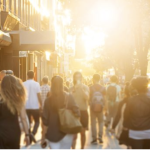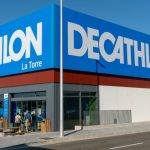Specialty retail sales representatives for Clif Bar & Co. will soon tread a lot lighter on the environment. Clif Bar is partnering with NativeEnergy to encourage its independent retail sales reps to reduce their climate footprint by using clean, renewable wind to offset the carbon dioxide they produce from driving to shops. Clif Bar will reimburse its reps for the purchase of wind energy credits from NativeEnergy, which uses the proceeds to help fund the construction of new wind farms.
“We ask our reps to spend hours behind the wheel of a car, traveling all over a territory to represent our brands,” noted Scott Whipps, Clif Bars vice president of sports retail. “We feel a responsibility to help offset that travel as part of our continuing effort to develop better business practices that reduce our contribution to global warming. We also hope our efforts will engage, educate and inspire our sales reps to consider the impact all of us have on the planet.”
If all of Clif Bars independent reps elect to participate in the program, they will offset about 380 tons of carbon dioxide (CO2) in 2007, the equivalent of removing 48 SUVs from the road for a year. CO2 is a greenhouse gas and the leading contributor to global warming.
Frank Snowden, a Clif Bar independent retail rep for California, Arizona, and Nevada, has represented the company for 13 years and is pleased with its decision to start the carbon offset program, which benefits not only Clif Bar but other manufacturers served by the independent reps as well.
“It brings awareness to what were really doing out there, which obviously is a lot more than worrying about the cost of gas,” said Snowden. “I think the carbon offset program is a very good way to get a lot of sales reps in the field to think about how our choices affect global warming. It inspired me to recently purchase a hybrid. I commend Clif Bar for taking its company-wide aspirations and spreading them across the business.”
The latest green innovation for independent specialty retail sales reps is part of Clif Bars five-bottom-line approach, which focuses on sustaining its business, brands, people, community and the planet. Clif Bar already has made many of its business operations climate neutral through energy conservation efforts, a switch to biodiesel for the company fleet and the purchase of wind energy credits from NativeEnergy to offset the remaining CO2 created by its offices, bakery, inter-company shipping and business travel.
“We make food to energize people-including many of us at Clif Bar-who love to run, bike, hike, swim and surf,” Whipps said. “Its simply natural for us to want to do our part to help preserve the outdoor places we love to play.”
What else is Clif Bar & Co. doing in the fight against global warming? These are but a few examples that directly benefit the sports specialty retail industry:
- Organic Ingredients Clif Bar uses about 20 million pounds of organic ingredients a year in all of its foods and drinks. Organic farming is a non-toxic, more regenerative way of growing food that requires much less fossil fuel than conventional farming. Burning fossil fuel unleashes CO2 into the atmosphere, affecting the air we breathe during activities such as cycling, running or climbing.
- “Green” Events Clif Bar offsets the carbon footprint of participants at such major sports events as the Accenture Escape From Alcatraz Triathlon, Mavericks Surf Competition and the Sea Otter Classic mountain bike competition.
- Consumer Education Clif Bar seeks to educate and inspire consumers about global warming. It did so this winter with the Clif Bar Save Our Snow (SOS) Winter Roadtrip that toured ski resorts in Canada and the Western United States.
- Consumer Action Clif Bar sells Cool Tags, a renewable wind energy credit, to attendees of sports events such as triathlons and cycling competitions. For each $2 Cool Tag sold, Clif Bar invests $2 in NativeEnergys WindBuilderssm program, helping build new wind turbines on Native American land.















